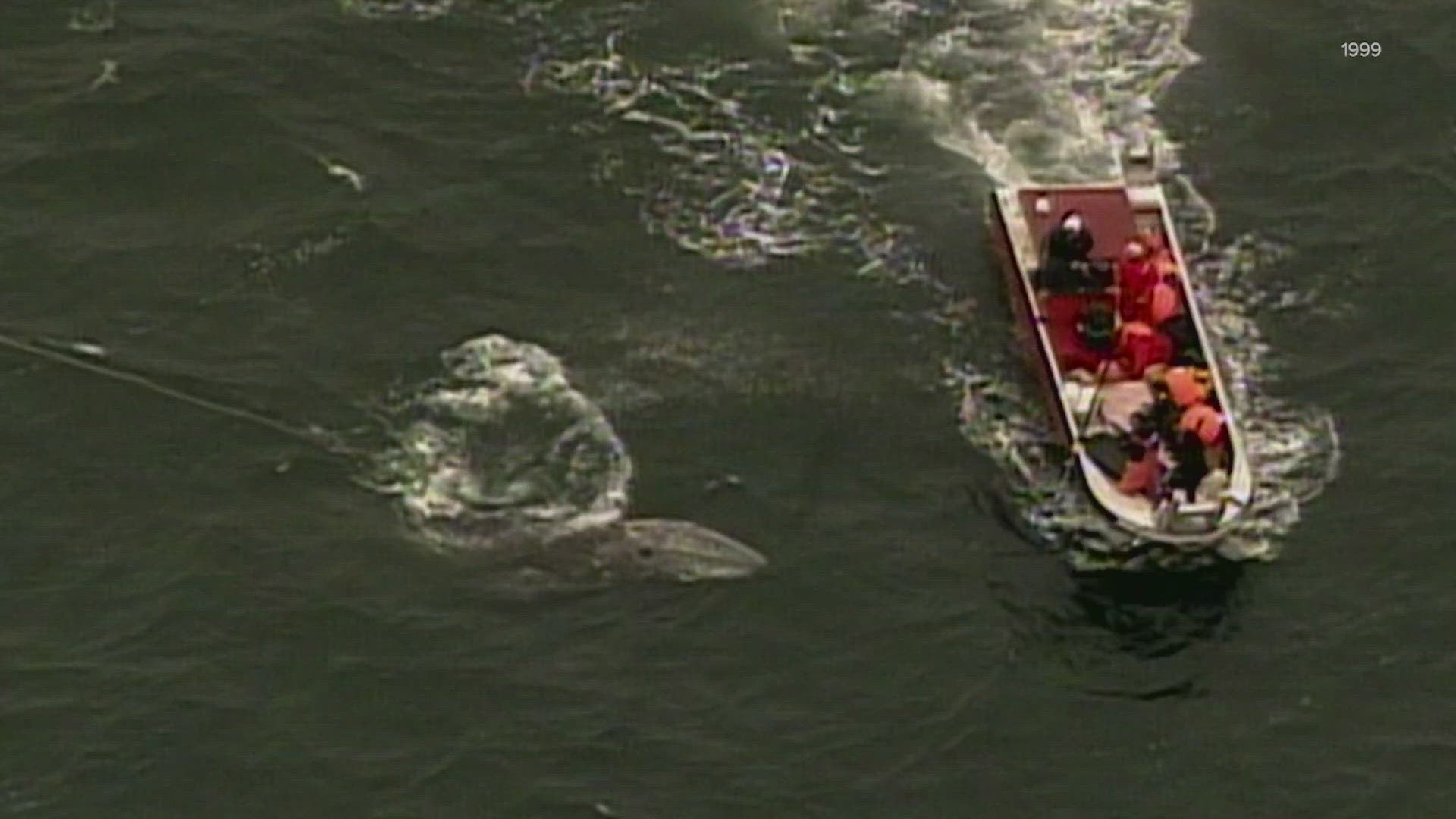NEAH BAY, Wash. — The Makah Tribe has been granted a waiver from the National Oceanic and Atmospheric Administration (NOAA) to hunt a limited number of gray whales for ceremonial and subsistence purposes over a 10-year period.
The Makah Tribe may hunt up to 25 Eastern North Pacific gray whales over the next decade, with a max of two to three whales per year. Before a hunt, the tribe must enter into a cooperative agreement with NOAA under the Whaling Convention Act and apply for and receive a permit.
Hunting is also subject to time and area restrictions, harvest limits, low population thresholds, restrictions on the use of gray whale parts and reporting and monitoring requirements, according to a release from NOAA.
“This final rule represents a major milestone in the process to return ceremonial and subsistence hunting of Eastern North Pacific gray whales to the Makah Tribe,” said Janet Coit, assistant administrator for NOAA Fisheries. “The measures adopted today honor the Makah Tribe's treaty rights and their cultural whaling tradition that dates back well over 1,000 years, and is fundamental to their identity and heritage.”
The overall hunting quota for gray whales will not change. Instead, the Makah Tribe was given a small portion of the total quota that was originally allocated to the Native people of Chukokta in Russia in 1997. In total, the number of gray whales struck in any year may not exceed 140.
Timeline
The Makah have hunted and eaten whales for thousands of years. It's part of their cultural and spiritual identity.
"A lot of our values that we have and a lot of our practices that we do as a community are tied into that whaling history and into our family structures," said T.J. Greene, Makah tribal chairman. "That's a very important part of it."
But when the gray whale population dropped in the 1980s the tribe stopped hunting.
As the population rebounded in the 1990s the Makah decided to take up the practice again, but environmental groups protested -- even interfering with the whaling crew when it was on the water.
The last time the Makah Tribe hunted a whale was May 1999.
Soon after the 1999 hunt, environmental groups took the tribe to court to prevent future whale hunting.
The tribe was seeking permission from federal and international agencies to resume whale hunting, a tradition within their culture dating back well over 1,000 years, for over 20 years, in accordance with the 1855 Treaty of Neah Bay.
It wasn't until April 2019 that NOAA published a proposed rule to issue the tribe a waiver. Later that year, an administrative judge led a public hearing considering the request in Seattle.
Nearly two years later, the judge issued a recommended decision, which NOAA used to determine their final decision on the Makah Tribe's request. That decision granting the waiver was made official on Thursday.
NOAA said the population of gray whales has rebounded to about 19,000 on the West Coast, but another group called Pacific Coast Feeding Group (PCFG) numbers only about 200.
Whale researcher John Calambokidis with Cascadia Research worries hunters may mistakenly take one of those.
"Any whales that are struck or taken will be documented and we have a complete catalog of the PCFG whales so we can recognize them and determine, at least after the fact, that they took one," Calambokidis said, adding that he believes there are adequate safeguards to protect that population.
There are still a few technicalities the tribe must go through to finalize their plan, but if all goes as expected, the Makah hope to resume their hunt in the spring 2025.

